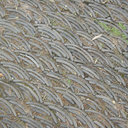Pseudomonas aeruginosa-mannose-sensitive hemagglutinin inhibits epidermal growth factor receptor signaling pathway activation and induces apoptosis in bladder cancer cells in vitro and in vivo.
Түлхүүр үгс
Хураангуй
OBJECTIVE
Pseudomonas aeruginosa-mannose-sensitive hemagglutinin (PA-MSHA), a peritrichous P. aeruginosa strain with MSHA fimbriae, has been shown to be a valuable anticancer drug in many kinds of cancers. However, the effect of PA-MSHA on bladder cancer has not been elucidated. In this study, we focused on the antitumor activities and related mechanisms of PA-MSHA on bladder cancer in vitro and in vivo.
METHODS
SV-40-immortalized normal uroepithelial cells (SV-HUC-1) and human bladder cancer cell lines (T24, 5637, and HT-1376) were treated with PA-MSHA or PA (heat-killed P. aeruginosa). At first, the effect of PA-MSHA on cancer cell proliferation was measured using Cell Counting Assay Kit-8 (CCK-8), whereas the changes of cell morphology were observed by transmission electron microscopy. The early apoptosis induced by PA-MSHA was evaluated by flow cytometry, and the expression level of apoptosis-related molecules was detected using Western blot assay. We then investigated the activation of the epidermal growth factor receptor signaling pathway stimulated by PA-MSHA; the expression and phosphorylation of several key regulators involved in the EGFR signaling pathway were detected. At last, xenograft tumor in nude mice was used to further investigate the antitumor effect of PA-MSHA in vivo.
RESULTS
Our results showed that PA-MSHA could efficiently inhibit proliferation and induce apoptosis in human bladder cancer cell lines. Furthermore, cells stimulated with PA-MSHA exhibited an inactivation of EGFR signaling. In vivo, PA-MSHA treatment significantly suppressed tumor growth and induced apoptosis in xenografts tumor in nude mice.
CONCLUSIONS
PA-MSHA could efficiently inhibit proliferation and induce apoptosis in human bladder cancer cells in vitro and in vivo, which is associated with the inactivation of EGFR signaling pathway, and it might be used as a potential therapeutic agent for bladder cancer.





